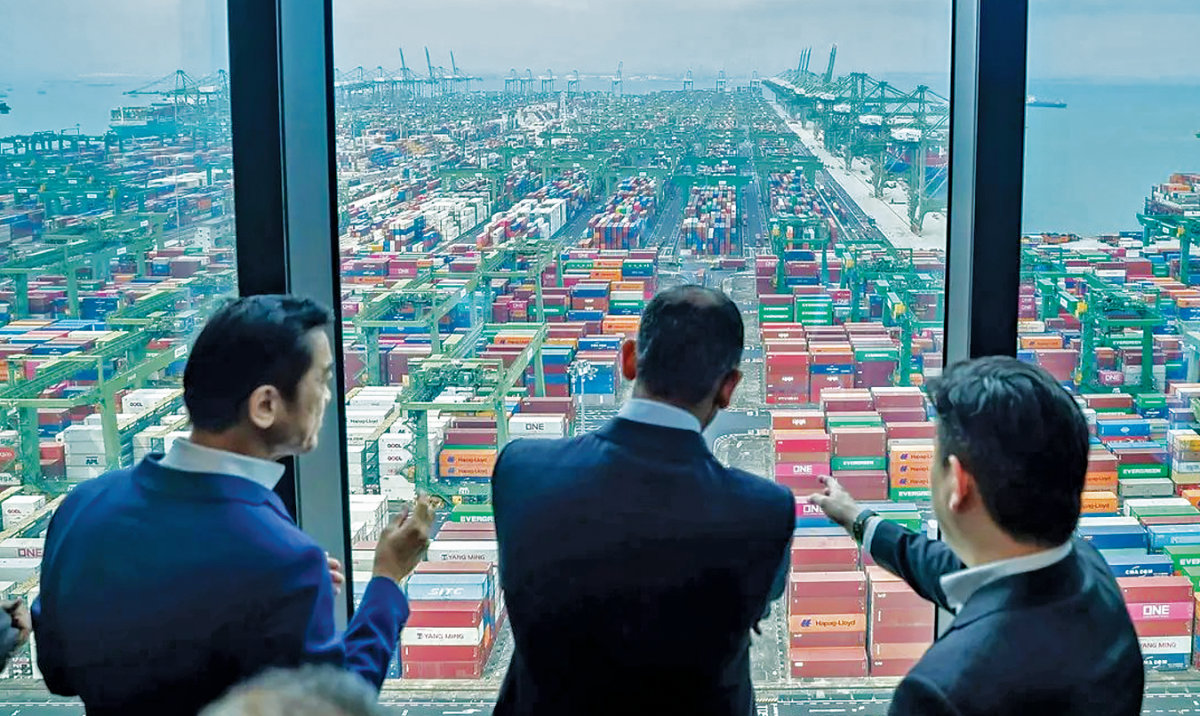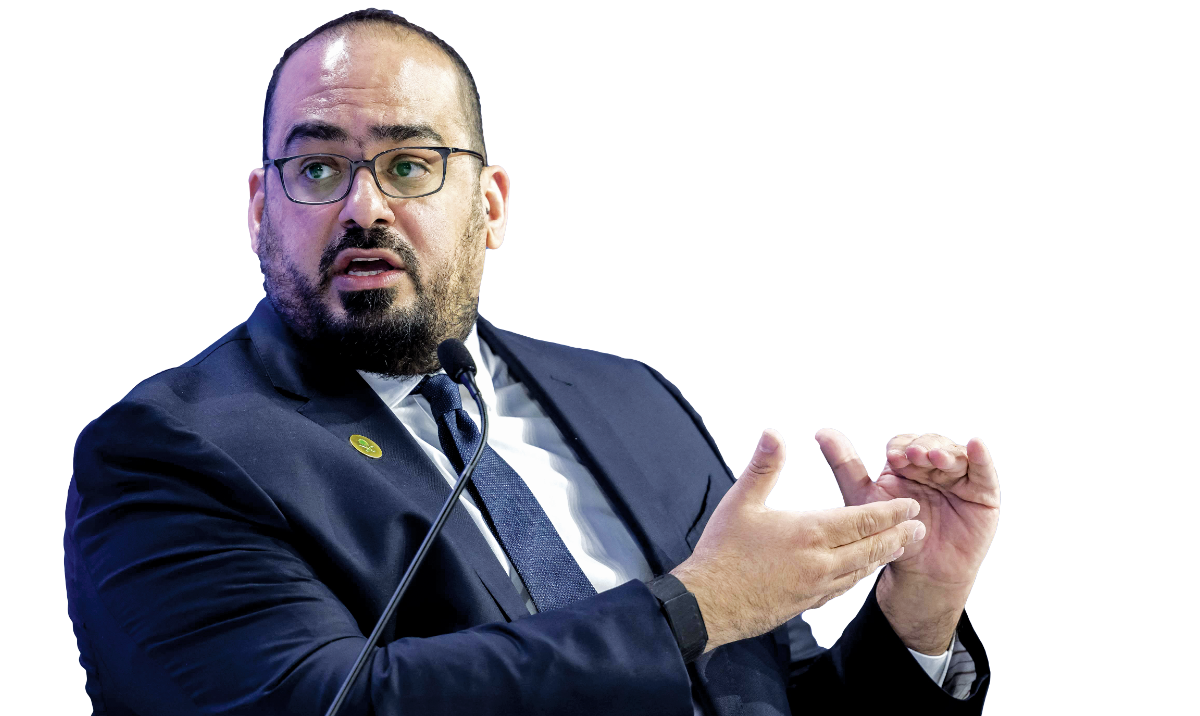RIYADH: The Real Estate Future Forum is set to serve as a global hub for industry leaders, policymakers, and investors as Saudi Arabia transitions toward a diversified and innovation-driven economy.
The event will be held from Jan. 27— 29 at the Four Seasons Hotel in Riyadh and will unite over 300 speakers from 85 countries to lead discussions on the direction of real estate.
Under the theme “Future for Humanity: Shaping Dreams into Reality,” RFF 2025 will focus on innovations, sustainability efforts, and investment strategies reshaping the global property market.
This year’s edition will also spotlight the Middle East’s $1 trillion real estate pipeline, which is driving changes in urban development and creating new regional economic opportunities.
Saudi Arabia at the forefront of real estate evolution
The Kingdom’s Vision 2030 reforms have positioned it as a leader in real estate development, combining innovation, sustainability, and economic growth.
Forum participants will get an in-depth look at major projects, including NEOM, The Red Sea Project, and Diriyah Gate, with a focus on their economic impact and long-term sustainability.
The discussions will provide insights into how these initiatives are influencing the broader real estate landscape.
A $1 trillion opportunity for global transformation
With the Middle East witnessing an unprecedented wave of urban expansion, the real estate sector is presented with both immense opportunities and critical responsibilities.
This year’s forum will highlight how key stakeholders can leverage digital transformation, sustainable construction, and strategic investments to build cities that are economically viable, environmentally responsible, and socially inclusive.
Managing Director and Partner at Boston Consulting Group, underscored the urgency of sustainability in real estate development.
“The Middle East’s $1 trillion real estate pipeline offers a once-in-a-generation opportunity to rethink how we design and build our communities,” Benjamin Deschietere told Arab News.
He added: “With buildings accounting for more than one third of global greenhouse gas emissions, decisions made today in the region’s transformative mega-projects will impact generations and have the potential to influence global standards for decades.”
Deschietere emphasized that sustainability in design, the use of greener materials, and advancements in construction and procurement practices are essential rather than optional.
He suggested that cities built with these principles would be more resource-efficient, livable, and valuable in the long term. He also noted that developers who adopt these approaches would gain a significant competitive edge in the coming decades.
A holistic approach to sustainability and innovation
RFF 2025 will not only focus on environmental sustainability but also on social and economic resilience. With the Kingdom’s target of developing 1 million new housing units, the forum will emphasize how sustainable urbanization can drive affordability, job creation, and social equity.
Edoardo Geraci, managing director and partner at BCG, highlighted to Arab News the need for a paradigm shift: “Traditional real estate has often prioritized growth over sustainability, but the future demands a more holistic approach.”
He added that beyond reducing carbon emissions, sustainable development must also consider social outcomes, such as inclusivity, affordability, and job creation.
“Passive design principles and smart building technologies already enable a reduction of lifecycle carbon emissions by up to almost 40 percent, offering significant cost savings over time,” the expert said.
Geraci noted that the Middle East has a distinct chance to demonstrate how well-planned urban development can improve quality of life, restore natural resources, and establish new standards for sustainable and resilient cities on a global scale.
Key themes and sessions at RFF 2025
Key themes and sessions at RFF 2025 will encompass various topics, with over 30 high-level dialogue events and 25 in-depth workshops.
Discussions on smart cities and digital transformation will explore the role of artificial intelligence and blockchain in real estate transactions and homeownership, innovations in smart buildings and urban infrastructure, and the impact of big data on market forecasting and investment strategies.
Sustainable real estate and green building innovations will be another focal point, addressing the shift toward net-zero developments and green architecture, sustainable financing models for eco-friendly projects, and case studies from leading sustainable cities and giga-projects.
Real estate investment and financing trends will be examined, with insights into alternative financing models for large-scale undertakings, the impact of global economic shifts on Middle Eastern real estate markets, and future trends in institutional investment and private sector involvement.
The forum will also highlight the role of giga-projects in economic growth, offering perspectives from key players behind NEOM, The Red Sea Project, and Diriyah Gate while discussing how these developments are shaping tourism, hospitality, and urban living, as well as the intersection of real estate, entertainment, and sports infrastructure.
RFF 2025 will provide a forward-looking perspective on integrating advanced technologies into the real estate sector. Panels will dive into emerging trends like virtual reality for property marketing, the role of the metaverse in digital real estate, and the use of robotics and 3D printing in construction. The implications of these technologies for efficiency, cost savings, and consumer experiences will be examined.
Another focus will be community-centered urban planning. Sessions will address the importance of inclusivity and accessibility in development projects, exploring how innovative housing models and mixed-use initiatives can enhance quality of life and foster social and economic prosperity.
Additionally, the forum will discuss sustainable procurement practices and supply chain transformation, offering insights into minimizing waste and achieving carbon neutrality in mega-projects.
The three-day event is set to feature a distinguished lineup of speakers, including government officials, global investors, and media personalities who will provide valuable insights into industry-shaping trends.
Notable speakers include Majid Al-Hogail, minister of municipalities and housing; Turki Bin Talal, governor of Asir Region and Saud Bin Talal, governor of Al-Ahsa as well as former US President Bill Clinton; international media influencer Piers Morgan; and global media commentator Tucker Carlson.
With Saudi Arabia’s Vision 2030 strongly emphasizing tourism and lifestyle projects, discussions will explore how cultural preservation and modern innovation coexist in urban developments.
Key sessions will delve into the design of projects such as New Murabba and Trojena in NEOM, examining how these ventures are redefining the Kingdom’s global image while fostering sustainable growth.
Additionally, insights into the transformative impact of major sporting and entertainment events on real estate demand and city planning will highlight the sector’s potential to drive broader socio-economic change.
A platform for transformative deals and partnerships
The 2024 edition of RFF saw over 50 agreements worth SR100 billion ($26.6 billion) signed, driving investment in key real estate projects. The 2025 forum is expected to eclipse those numbers, offering an even greater platform for deal-making, policy announcements, and strategic partnerships.
A Glimpse into the Future
The Kingdom’s real estate sector is on the cusp of a technological and financial revolution driven by digital transformation, sustainable design, and forward-thinking policies.
As Vision 2030 continues to guide the nation toward an economically diversified and innovation-driven future, RFF 2025 will serve as a platform for international investors, developers, and policymakers looking to tap into the region’s potential.
RFF 2025 will offer various opportunities for networking, collaboration, and sharing insights, making it a key event in the ongoing development of the global real estate industry.
























